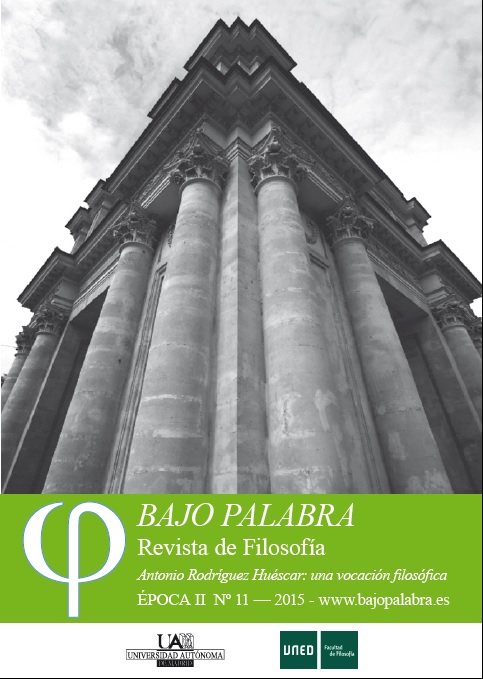Waiting for the Unexpected. Some Reflections about Contingency in the Work of Antonio Rodríguez Huéscar and José Ortega y Gasset
Keywords:
contingency, mortality, meaning, historicity, freedom, liberalism, democracy, violenceCopyright (c) 2015 Jesús M. Díaz Álvarez, Jorge Brioso

This work is licensed under a Creative Commons Attribution 4.0 International License.
Abstract
This essay, written with four hands, also tells four philosophical stories. In them, the avatars that we have created for Antonio Rodriguez Huescar, Jose ortega y Gasset, Richard Rorty and John Gray allow us to work through their philosophical use of contingency as a category. In the first part of the article, we study the theory of contingency that Antonio Rodriguez Huescar elaborates using the fundamentals he learned from ortega. Huescar understands that the nucleus of this category is related to the constant opening of reality to unexpected occurrences. He summarizes contingency as «waiting for the unexpected». In the second part, we study the ethical- political dimensions of contingency. It is a study of how this category has been read socially and politically. In this section we compare the ortega-Huescar thesis with those that proceed from two important contemporary thinkers who have made this category one of the central tenets of their philosophical thought: Richard Rorty and John Gray. The result of this comparison will lead us to the conclusion that ortega and Gray will focus on the lack of transparency, the ambiguities, and political obscurities that the historicity of the meaning of life carries with it. ortega and Gray great fear is anarchy and chaos. Rorty, on the other hand, sees contingency as a possibility so that we can all be humble with the meanings we generate and for that reason will bring together contingency with democracy.
